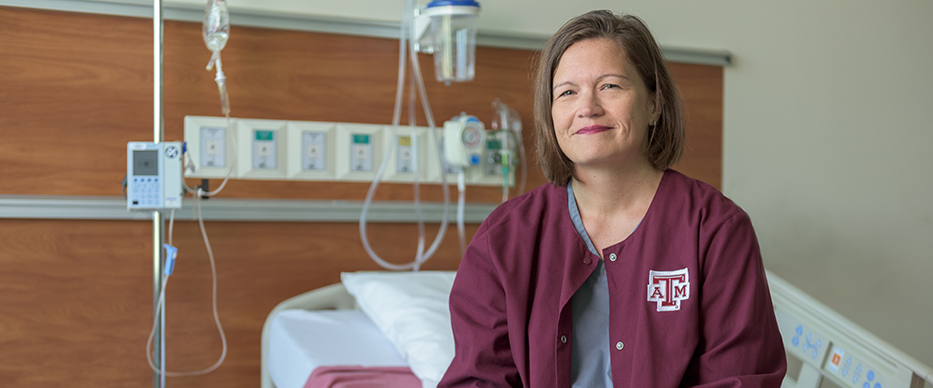
On Texas A&M Center for Sports Management Research & Education Week: LGBTQIA+ patients still face challenges at their doctor’s office.
Alison Pittman, clinical assistant professor in the college of nursing, explores why.
Alison Pittman, PhD, MSN, CPN, RN, CNE is a clinical assistant professor at the Texas A&M College of Nursing. Her research interests include pediatric obesity, sibling visitation in pediatric critical care, innovative teaching strategies in nursing LGBTQ health in youth and young adults, diversity in nursing education and the nursing workforce, ACES (adverse childhood experiences) and their effect on health, and nursing student health.
Dr. Pittman received her Bachelor of Science in nutritional science from Texas A&M University, Master of Science in nursing from University of Texas at Austin and Doctor of Philosophy in nursing research from the University of Texas at Tyler.
Dr. Pittman is a Texas Board of Nurses registered nurse, Certified Pediatric Nurse and Certified Nurse Educator.
LGBTQIA+ Medical Care
Significant health disparities exist among LGBTQIA+ (lesbian, gay, bisexual, transgender, intersex, queer, and allies/associates) adults and children. According to numerous studies, sexual and gender minority patients experience medical staff who are ill-informed, ask inappropriate questions, or refuse to treat them. A 2014 report by the advocacy group Lambda Legal found more than half of lesbian, gay, or bisexual respondents and 70% of transgender respondents have experienced discrimination while seeking health care. This can result in delay of seeking care, which can be critical in our current national health situation. Health professions education programs are not meeting the needs of LGBTQIA+ patients. The average LGBTIQ+ content in U.S. medical schools is 5 hours. U.S. nursing schools average 2 hours, while dental schools average 3.6 hours and dental hygiene schools 1.25 hours. Thirty-nine percent of pharmacy schools report 3 hours or less. To date, there are no health science centers or institutions in Texas that provide an interprofessional LGBTIQ+ curriculum for the health professions. We seek to address this gap as an alliance of faculty and students to be the first team in Texas to develop an interprofessional LGBTIQ+ curriculum for health professionals. We are an interdisciplinary team of faculty, students, and staff from all colleges within TAMU Health (dentistry, medicine, nursing, pharmacy, public health) with the goal of creating an interdisciplinary curriculum for students and providers on LGBTIQ health. We are currently completing a literature review on the state of educational efforts. We also have a study in progress that involves a survey of TAMU Health students and faculty on attitudes and knowledge related to LGBTIQ+ health educational efforts. We hope to evaluate learning needs, barriers to providing culturally competent care, and use this data to guide development of an interprofessional LGBTIQ+ curriculum for health professionals. This curriculum will focus on interdisciplinary education taught by faculty from all HSC colleges (dentistry, medicine, nursing, pharmacy, and public health).
